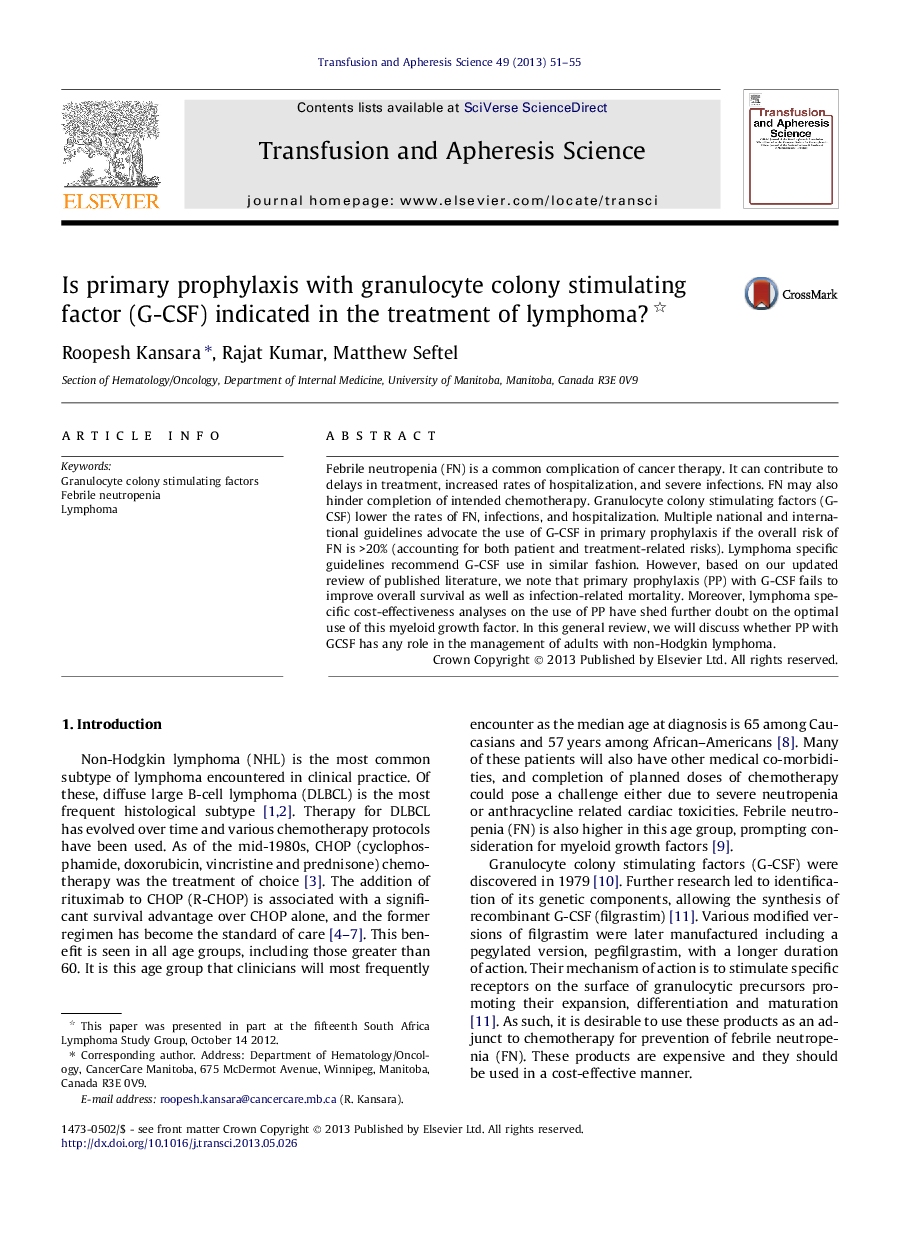| Article ID | Journal | Published Year | Pages | File Type |
|---|---|---|---|---|
| 3335025 | Transfusion and Apheresis Science | 2013 | 5 Pages |
Febrile neutropenia (FN) is a common complication of cancer therapy. It can contribute to delays in treatment, increased rates of hospitalization, and severe infections. FN may also hinder completion of intended chemotherapy. Granulocyte colony stimulating factors (G-CSF) lower the rates of FN, infections, and hospitalization. Multiple national and international guidelines advocate the use of G-CSF in primary prophylaxis if the overall risk of FN is >20% (accounting for both patient and treatment-related risks). Lymphoma specific guidelines recommend G-CSF use in similar fashion. However, based on our updated review of published literature, we note that primary prophylaxis (PP) with G-CSF fails to improve overall survival as well as infection-related mortality. Moreover, lymphoma specific cost-effectiveness analyses on the use of PP have shed further doubt on the optimal use of this myeloid growth factor. In this general review, we will discuss whether PP with GCSF has any role in the management of adults with non-Hodgkin lymphoma.
